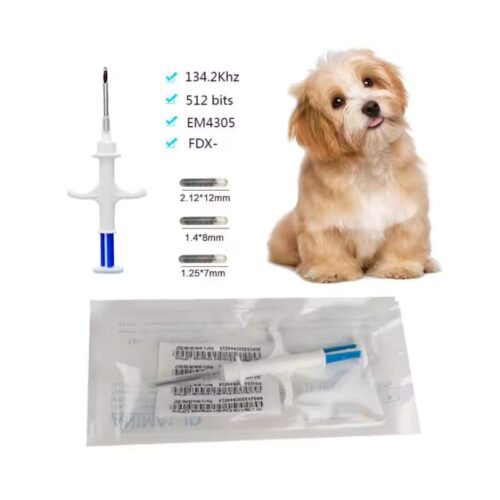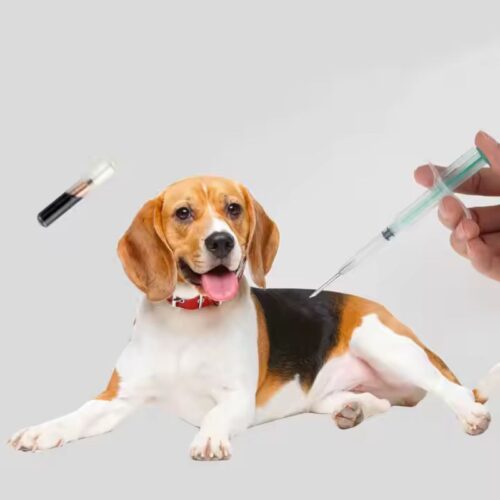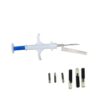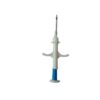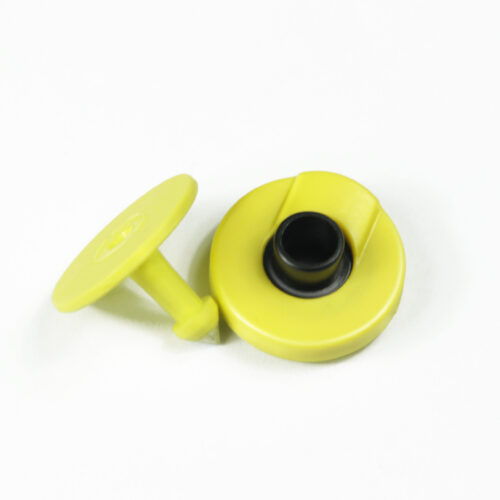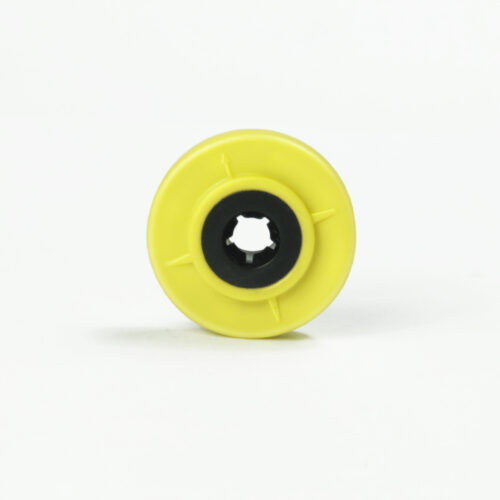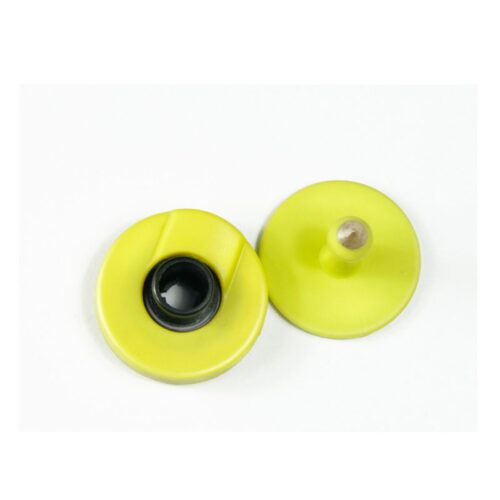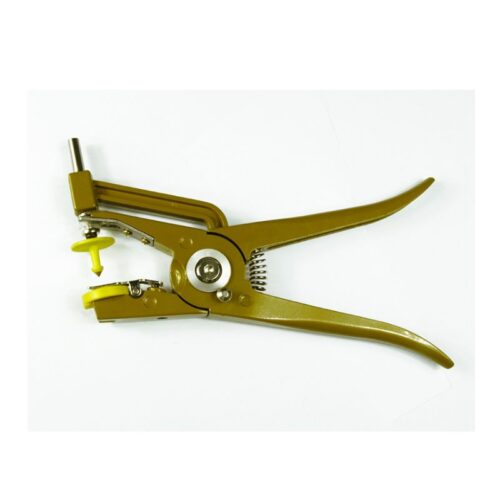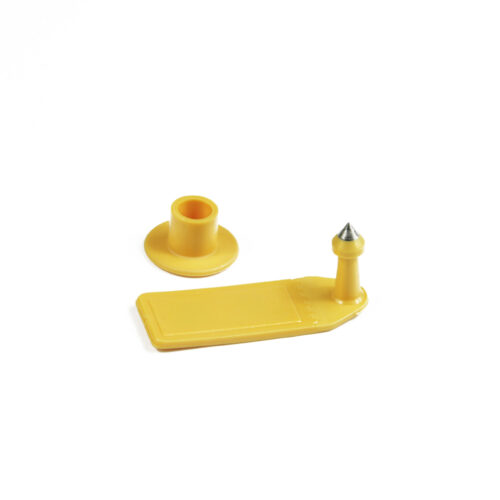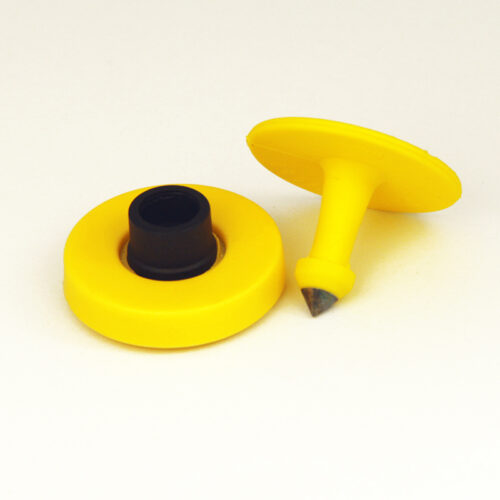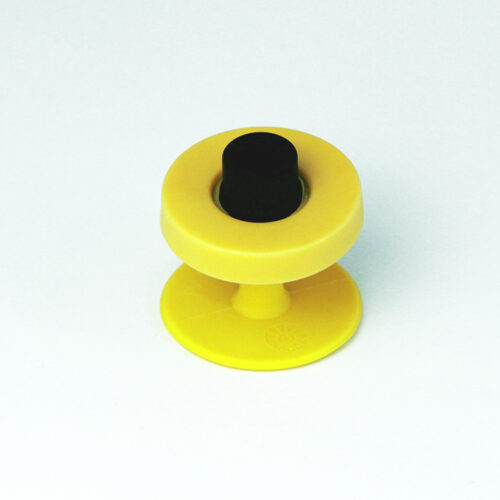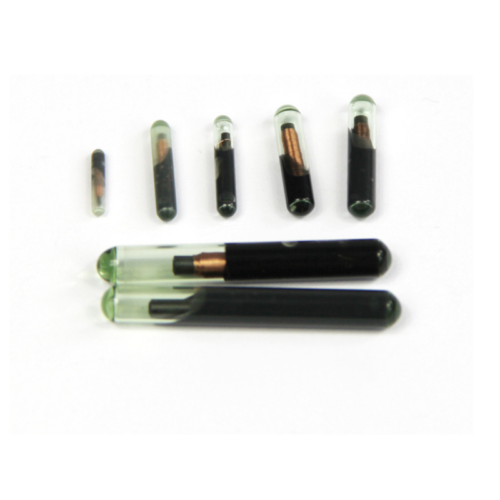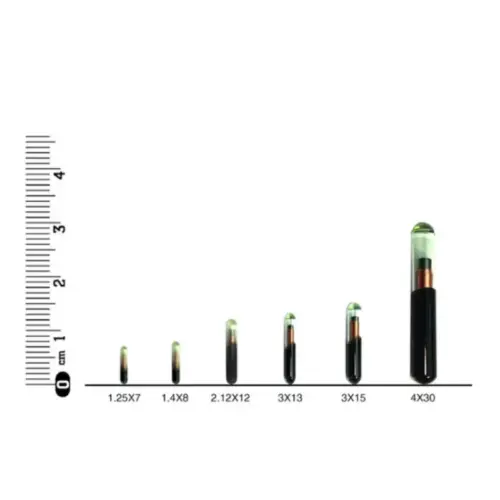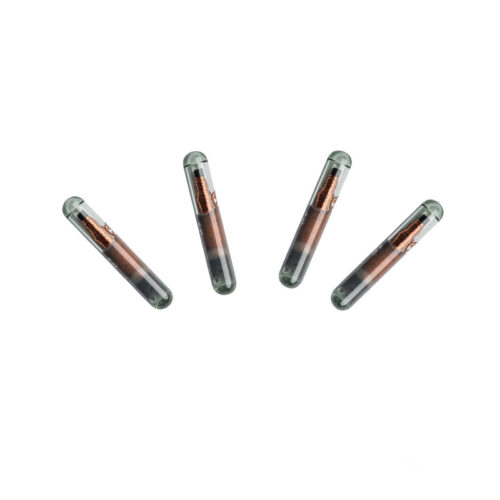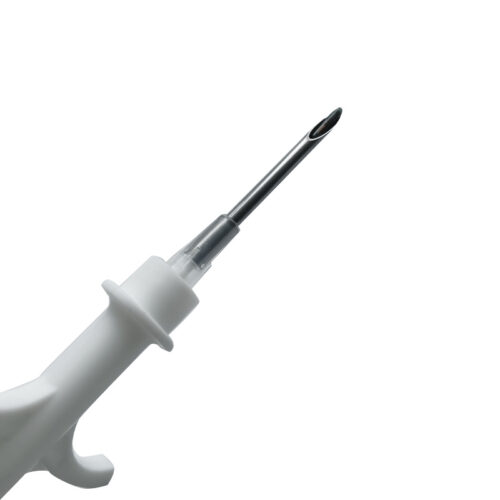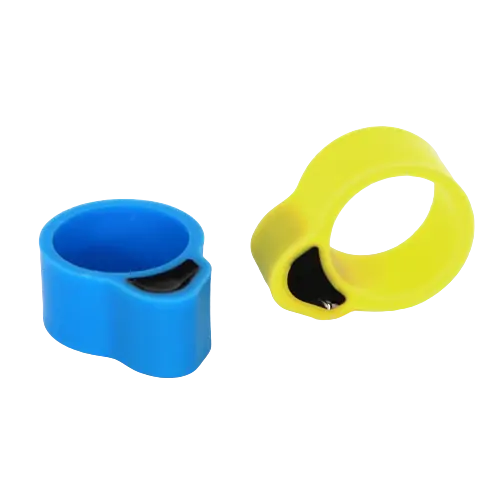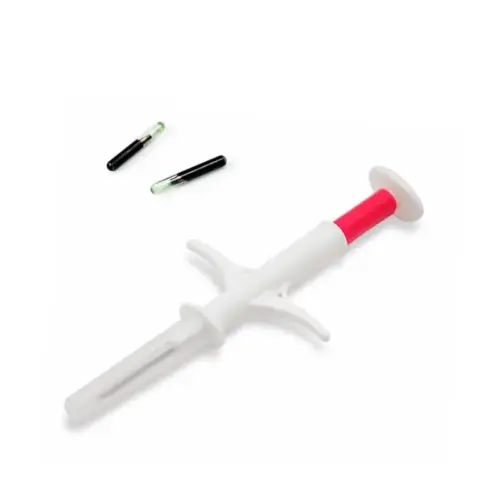125KHz RFID Syringe Rewritable Tags: Advancing Animal Identification and Tracking
Accurate animal identification and tracking are crucial for livestock management, pet safety, wildlife research, and laboratory settings. Traditional methods often prove inadequate. Radio Frequency Identification (RFID) technology, particularly 125KHz RFID syringe rewritable tags, offers a robust, flexible, and humane solution for modern animal management. These biocompatible glass-encapsulated transponders, pre-loaded in sterile syringes, provide permanent identification. The “rewritable” feature, often utilizing T5577 chips, allows data to be updated, making them invaluable for dynamic information management.
Understanding 125KHz RFID Syringe Rewritable Technology
RFID uses radio waves to transfer data between a tag and a reader. The 125KHz Low Frequency (LF) is well-suited for animal ID due to its ability to penetrate animal tissue, cost-effectiveness, and resilience to interference from body fluids.
The “syringe” form factor ensures the transponder (microchip and antenna sealed in biocompatible glass) is delivered via a quick, minimally invasive, and sterile subcutaneous implantation. This reduces animal stress.
The key “rewritable” capability of 125KHz RFID syringe rewritable tags allows user memory (e.g., on T5577 chips) to be programmed, read, and reprogrammed. This means an animal’s unique ID can be initially set, and associated data (like health status or ownership) can be updated in a linked database or, in some cases, on the tag itself, without needing to replace the tag. This adaptability is a significant advantage over read-only tags.
The Advantages of Rewritable 125KHz RFID Syringe Tags
Employing 125KHz RFID syringe rewritable tags offers significant benefits:
Data Flexibility and Updatability: This is the primary strength. As an animal’s status changes (e.g., medical history, ownership, research group), associated data can be updated, keeping the identification system current and relevant.
Permanent and Secure Identification: Once implanted, the tag offers a lifelong, tamper-proof ID, ensuring data integrity.
Improved Animal Welfare: The implantation is quick, akin to a vaccination, using biocompatible materials to prevent adverse reactions and tag migration.
Enhanced Traceability & Record Keeping: Each unique digital ID links to a detailed database, facilitating meticulous records for health, movement, and regulatory compliance, crucial for disease control and food safety.
Streamlined Management: Automated data capture speeds up routine tasks like inventory and health checks, reducing labor and errors.
Long-Term Cost-Effectiveness: Despite initial costs, the durability and data adaptability reduce re-tagging needs and improve operational efficiency.
Versatility Across Species: Suitable for companion animals, livestock, wildlife, lab animals, and zoo species, with tag sizes adaptable to the animal.
Applications and Key Implementation Points
125KHz RFID syringe rewritable tags are highly versatile:
Livestock Management: For farm-to-fork traceability, health records, and breeding programs. Data (vaccinations, sale status) can be updated.
Companion Animal ID: Permanent identification for pets, aiding recovery if lost. Ownership details can be updated.
Wildlife Research: Monitoring populations, migration, and behavior. Observational data can be linked and updated.
Laboratory Animals: Ensures accurate ID and record-keeping for research integrity.
Zoos and Aquariums: Individual animal care, health monitoring, and breeding management.
Key Implementation Points:
Proper Implantation: By trained personnel at a standardized site.
Reader Compatibility: Ensure readers/writers support 125KHz rewritable tags (e.g., T5577).
Database Management: A robust system for storing and updating linked data.
Data Security: Implement measures to protect sensitive information.
Standardization: Adherence to relevant ISO standards (e.g., ISO 11784/11785 compatibility) where beneficial.
Technical Specifications (Typical Example for 125KHz RFID Syringe Rewritable Tag)
| Feature | Specification |
| Frequency | 125 KHz (Low Frequency) |
| Chip Type | T5577 (or similar rewritable LF chip) |
| Memory | Typically 330 bits EEPROM, configurable user memory |
| Read/Write Distance | Up to 10 cm (depending on reader and environment) |
| Material | Biocompatible Glass (e.g., Schott 8625) |
| Coating | Parylene (anti-migration coating) |
| Dimensions (Tag) | e.g., 1.4x8mm, 2.12x12mm, 3x15mm (various sizes) |
| Syringe | Pre-loaded, sterile, single-use medical grade |
| Operating Temperature | -25°C to +85°C |
| Storage Temperature | -40°C to +90°C |
| Standard Compliance | Can be programmed to emulate ISO 11784/11785 FDX-B, EM4100/EM4200 etc. |
| Data Retention | > 10 years |
| Write Endurance | > 100,000 cycles |
| Ingress Protection | IP68 (hermetically sealed) |
In summary, 125KHz RFID syringe rewritable tags offer a significant improvement in animal identification, providing a permanent, humane, and adaptable solution. Their rewritable nature is key to maintaining accurate, up-to-date records, enhancing efficiency and animal welfare across diverse applications.




